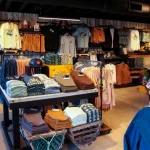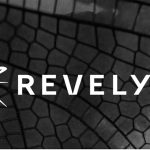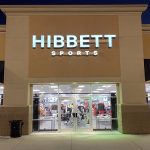The 14th annual OIA Rendezvous again attracted the leaders of the outdoor industry to gather in one place for three days of seminars, discussions and business at San Diego’s Coronado Island. Based on the increased attendance, this year’s Rendezvous showed signs of an improving economy. Over 315 people arrived in San Diego for the event, matching the record attendance set two years ago in Vancouver, WA. In addition, the mood was dramatically different compared to the dire feelings of a year ago.
Last year in Boston, the usual energy exhibited by attendees at Rendezvous was marred by the crash of the stock market the day before the event officially opened. Many attendees recounted the alarms that went off as every cell phone in the room rang at basically the same time during OIA’s annual board meeting. This year, most attendees felt that a page had turned and the overall theme seemed to be the search for opportunities following the turmoil the industry has experienced over the past year.
As usual, OIA staff found a series of quality keynote and session speakers to provide some rhythm to the back-to-back breakout sessions.
The event opened with the inspiring Kevin Carroll, who was abandoned by his mother at the age of six and left alone with his eight-year-old brother and younger brother in a trailer for days before they eventually found refuge and loving support with their grandparents. Soon after this experience, Carroll discovered the power of play and used it to transform his life. He joined the Air Force, earned a Masters degree, and eventually became a trainer for the Philadelphia 76ers and then went on to become a creativity guru at Nike. Carroll’s experience fit in perfectly with the prevailing mentality at Rendezvous this year. In spite of the difficulties the outdoor industry has faced over the past year, many are quickly discovering the power that recreation and play have in tough economic times. The country may also be coming to the same conclusion as more families are camping, paddling and hiking – together.
Along a similar theme OIA invited Eric Weihenmayer to speak as well. Weihenmayer lost his sight as a teen but was able to see past his disability and become one of he few people in the world to summit the highest peak on each continent.
Weihenmayer has also completed difficult rock climbing ascents and ski descents from some of the tallest mountains in the world.
He has taught at the Braille without Borders school for the blind in Tibet and led an expedition of blind children up to 21,000 feet above sea level in order to prove to them that they too could climb. Weihenmayer’s accomplishments and charitable acts make him a true inspiration for the industry.
While the keynote speakers were more about inspiration in the face of adversity, the breakout sessions focused on how the industry can capture opportunity in this difficult market. Speakers tackled issues such as social media, diversity in the workplace, life after the “Great Recession,” and minimum advertized pricing policies.
Several breakout sessions were dedicated to social media. Paul Kirwin, the founder of Channel Signal a new media monitoring company – left attendees with more actionable items and tangible real-world examples of the impact of social media. He dug into several case studies about how social media goes viral among different user groups including an in-depth case study on Sigg’s recent difficulties with BPA (see BOSS_0934). One attendee told BOSS that the presentation “scared the hell out of me it made me realize how much I don’t know and how many people are talking about my company online.”
Andrea Anderson, an attorney at Holland & Hart, outlined some o the legal risks brands take in the social media sphere. In particular, she pointed to the importance of having an online policy for employees citing 107 lawsuits against individuals and their employers in 2007 that involved comments made online. These lawsuits resulted in over $100 million in verdicts.
Creative thinking also took center stage at several sessions. Chris Waugh, a member of the Ideo team in San Francisco, took attendees through the creative “design” process. He views the word “design” in a broader aspect, pointing out that everyone is in control to “design” their own lives. Waugh’s philosophy to “fail early and often” encourages creativity regardless of the outcome. He points to the importance of testing theories in low- or no-cost environments before implementing them company-wide.
Kelly McDonald, the founder and CEO of McDonald Marketing a firm that focuses on marketing to different ethnicities and cultures in the U.S. market spoke about the complexities and diversities in the U.S. landscape today. She redefines diversity along a much broader axis that includes gender, religion, age, sexual preference, political differences and several other factors. She also pointed out that the U.S. is now the second largest Hispanic country in the world there are more Hispanics in the U.S. than the entire population of Canada. McDonald also identified several hot market segments, including the Boomer generation, Hispanics, African Americans, and Millenials.
Jonathan Lansner, a business columnist for the Orange County Register and David J. Lynch, a global business writer for USA Today, offered the journalists’ broad-market and local perspectives on the current economic situation and prospects for a future recovery. They pointed to several different expectations the business community has now versus pre-recession. Today there are lower growth expectations, the conspicuous consumption of 2005 is gone, and the central bank has fundamentally changed the way it does business it will now proactively attempt to burst asset bubbles before they become so big that they are a global problem.
In the end, the main take-away from the 2009 Rendezvous was hope. Many of the attendees have lived through what they believe to be the worst-case scenario — and they survived. Now many are looking at new opportunities for growth. While today’s market is vastly different that it was a year ago, most of the companies represented at Rendezvous have been nimble enough to aggressively react to these changes and are now seeing light on the horizon.














